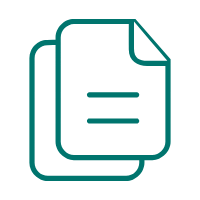CANbus Converter
.jpg)
.jpg)
.jpg)
.jpg)
.jpg)
.jpg)
.jpg)
.jpg)
.jpg)
.jpg)
MW-CANFiber500 CAN-bus to Fiber Converter/Server
- 1×100Base-FX FIber Port, 2× CAN Ports
Features and Benefits
- SC/FC/ST connector, single-mode/multi-mode fiber, wavelengths, and transmission distances
- Support modes such as UDP, TCP Client, TCP Server, UDP multicast, etc., enabling CAN to UDP/TCP conversion and allowing CAN devices to connect to the network External independent hardware watchdog design to prevent system crashes
- Support AC85264V/DC110370V power input, or DC9~60V DC power input
- High-strength metal casing with IP40 protection level, fanless design for heat dissipation, allowing the device to operate reliably in harsh industrial environments ranging from -40°C to +85°C
- Overview
- Specifications
- Downloads
- Models
Product Description
The MW-CANFiber500 is a CAN-bus to Ethernet fiber card-mounted CAN server, capable of CAN to optical fiber and CAN to Ethernet conversion. It extends the transmission distance of CAN buses and allows centralized management through a network. This product provides 1 100M Ethernet port and 2 CAN ports and supports multiple power input options, including AC85264V / DC110370V AC or DC9~60V DC.
The product is designed with high-quality components, adheres to high standards in system design and production control, and can be easily installed on a 35mm standard DIN rail. It features a robust and durable high-strength metal casing, fanless heat dissipation, and can operate in a wide temperature range from -40°C to +85°C. With its high-standard industrial protection design, it can adapt to various challenging working environments, ensuring stable communication performance.
MW-CANFiber500 supports various network management functions through web configuration, including CAN/network operating modes, CAN statistics, network addresses, network diagnostics, user passwords, system information, and system management. It also supports multiple conversion modes such as UDP, TCP Client, TCP Server, UDP multicast, enabling CAN to Ethernet protocol conversion, connecting CAN bus networks to Ethernet networks.
The product has undergone rigorous testing for functionality, temperature extremes, safety standards, and EMC compliance, making it suitable for complex network applications and demanding industrial environments. It can be widely used in industries such as automotive, industrial automation, IoT applications, energy management, enabling remote monitoring and control, data collection, and integration.
Features and Benefits
-Utilize a 32-bit ARM Cortex-M7 core with a high operating frequency of up to 400MHz
-Support normal mode, loopback mode, or listen-only mode, suitable for CAN bus testing and troubleshooting
-Support selectable baud rates ranging from 5kbps to 1000kbps, with options for custom or adaptive baud rates
-Provide filtering for both CAN standard frame IDs and extended frame IDs
-Support UDP and UDP Multicast modes, enabling point-to-point, point-to-multipoint, or multipoint-to-multipoint communication via the UDP protocol, offering speed and efficiency
-Support TCP Client/Server modes, establishing session connections using the TCP protocol, with support for up to 4 simultaneous connections
-Offer various packetization mechanisms, converting CAN data into Ethernet data packets based on data length or time, meeting different real-time network requirements
-Support user management with different levels of permissions
|
Software |
|
|
CAN Operation Mode |
Support UDP, TCP Client, TCP Server, UDP multicast modes Support normal mode, loopback mode, and listen-only mode Support packet/frame count, packet/frame intervals Support CAN ID filtering |
|
System Management |
Support CAN data statistics, static IP configuration, Ping functionality, and user password management Support online reboot, factory reset, system upgrades, and configuration file upload/download |
|
Switching |
|
|
Backplane Bandwidth |
1.2Gbps |
|
Buffer Size |
768kbit |
|
MAC Table Size |
2k |
|
Interface |
|
|
100M Fiber Port |
1*100Base-FX fiber port, support single-mode/multi-mode, SC/FC/ST connectors, selectable wavelength, and transmission distance |
|
CAN |
Standard: Compliant with CAN 2.0A and CAN 2.0B protocols Number of Interfaces: 2*CAN Connection Method: 5-pin 5.08mm pitch terminal blocks Baud Rate: Selectable from 5kbps to 1000kbps Termination Resistor: Built-in 120Ω termination resistor, adjustable via dip switches Isolation Protection: 3kVDC isolation |
|
Ethernet management port |
1*10/100Base-T(X) auto sensing 100M RJ45 Ethernet port, support MDI/MDI-X connection (for device management only, not for regular communication) |
|
DIP Switch |
CAN termination resistor, reboot, factory reset |
|
Status LED |
Power indicator, operational indicator, fiber port indicator, CAN indicator |
|
Power Supply |
|
|
Input Voltage |
DC Model: DC9~60V, non-polarized AC Model: AC85~264V (Frequency: 47~63Hz) or DC110~370V |
|
Power Consumption |
<2.2W@DC24V(full load) |
|
Connection |
3-pin 5.08mm pitch terminal block |
|
Physical Characteristics |
|
|
Dimensions |
118×35×88 mm (DIN rail mounting clip excluded) |
|
Installations |
35mm standard DIN rail |
|
IP Code |
IP40 |
|
Weight |
0.4kg |
|
Working Environment |
|
|
Operating Temp |
-40℃~+85℃ |
|
Storage Temp |
-40℃~+85℃ |
|
Relative Humidity |
5%~95% (non-condensing) |
|
Industry Standard |
|
|
EMC |
IEC 61000-4-2 (ESD - Electrostatic Discharge):
IEC 61000-4-5 (Surge):
IEC 61000-4-4 (EFT - Electrical Fast Transients):
|
|
Certification |
CE, FCC, RoHS |
NAME |
VERSION |
download |
|---|
|
Standard Model |
100M Fiber Port |
CAN |
Input Voltage |
|
MW-CANFiber500-F(M/S) |
1 |
2 |
DC9~60V |
|
MW-CANFiber500-F(M/S)-AD220 |
1 |
2 |
AC85~264V or DC110~370V |
- Products
- Ethernet Switch
- PoE Switch
- Media Converter
- Serial Device Server
- Industrial Gateway
- Fieldbus Converter
- WLAN
- Cellular
- Contact
-
 +86 27 87170217
+86 27 87170217
 No.52, Liufang Road, East Lake Hi-tech Development Zone, Wuhan, China
No.52, Liufang Road, East Lake Hi-tech Development Zone, Wuhan, China





















